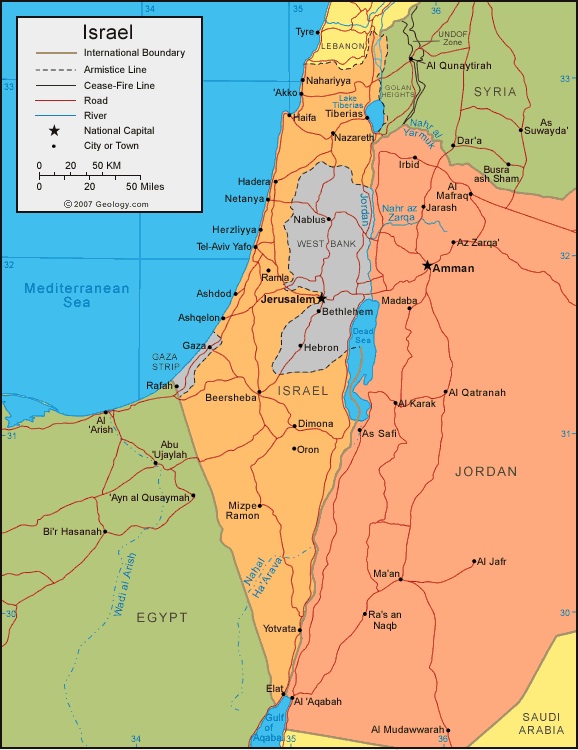Letter from Israel: How Far We've Come
- Wednesday, 10 July 2013 08:27
- Last Updated: Wednesday, 10 July 2013 08:41
- Published: Wednesday, 10 July 2013 08:27
- Hits: 3615
 This piece was submitted by Diana Bletter, formerly of Great Neck and now a resident of Israel: The Muslim holiday of Ramadan begins this year on July 9. Right before Ramadan began last year, I attended my first Muslim wedding ceremony of my friend, Amira. The wadah-elarus ceremony, or Farewell to the Bride, was held in Amira's family's courtyard in the village across from my house in Israel's Western Galilee. The all-female rite marks the end of a woman's life in her childhood home and her transition into her groom's household. Amira's ceremony gave me the chance to celebrate with her—and to be reminded of how grateful I am to be an American-born woman.
This piece was submitted by Diana Bletter, formerly of Great Neck and now a resident of Israel: The Muslim holiday of Ramadan begins this year on July 9. Right before Ramadan began last year, I attended my first Muslim wedding ceremony of my friend, Amira. The wadah-elarus ceremony, or Farewell to the Bride, was held in Amira's family's courtyard in the village across from my house in Israel's Western Galilee. The all-female rite marks the end of a woman's life in her childhood home and her transition into her groom's household. Amira's ceremony gave me the chance to celebrate with her—and to be reminded of how grateful I am to be an American-born woman.
When I arrived, there were about 100 women seated around the compound watching as Amira danced by herself in her long white wedding gown. Every so often, she dabbed her tears, making sure her make-up didn't run, and a sister-in-law whisked away her crumpled tissue, pressing a fresh one into her palm. In another hour, her bridegroom's family would come and take her away.
I've known Amira since I moved from Long Island to Israel in 1991. Unmarried and the youngest of eight, Amira, 41, seemed destined to be the designated daughter: the one who'd live with her elderly parents and take care of them forever. But in her large family clan, she was also the macher, the go-to person if you wanted anything done. Mornings, she managed the auto-repair shop of one brother; afternoons, she ran the endocrinology clinic of another brother; evenings, she raised the son of yet another brother, a widower.
Then, suddenly, Amira shocked everyone with the news that she was marrying Issam, a man she met through work. She told me that Issam's marriage to his distant cousin ended when she left him and their three children for a childhood sweetheart. The move was scandalous; their three children stayed with Issam, refusing to even speak to their mother. Issam searched for a new wife and after meeting Amira several times, he proposed and she accepted.
Now, Amira was having one last dance with friends and family before she switched loyalties to Issam's clan. A disc jockey played Arabic melodies spiked with a throbbing beat. Amira caught my eye and invited me to join her. I was wearing a gingham shirt, skinny jeans and ballet shoes – how could I blend in among the stiletto heels, long robes and hijabs? Dizzying nights at Studio 54 in the 1970s hadn't prepared me for this dance. Plus, I was the only Jewish woman there: I knew everyone would stare at me. Yet I couldn't sit this one out.
I made my way through the throng of women thinking about all the things I do that the women in the village would never do. Simple things, like riding a bike. My life was so different from theirs. I'd moved from Great Neck—a town with a reputation not unlike Scarsdale's—to live in Israel with my first husband and our four children. And then I recklessly fell in love with someone else. However, I never feared losing my kids or the condemnation of my community. And, because I grew up on "The Brady Bunch," I plunged into blending a new family with six kids, and unofficially adopting a seventh.
How could I not worry about Amira? She was sacrificing her relatively independent life to cook and clean for a man she barely knew, raising his kids under the watchful eye of a mother-in-law in a much more traditional village. Yet this might be Amira's last chance to have children and her own family. And then again, American women also fiercely debate if they can have it all. I suddenly understood that in Amira's society, this was the best choice that she could make. So I danced with her, trying to gracefully weave my fingers through the air, writing invisible blessings for Amira across the sky.
A short time later, the bridegroom's mother and sisters came through the gate, beating drums. Amira danced with them for a while and then it was time for her to go. She bent over her mother and kissed her good-bye with a grave finality I'd never seen on American brides' faces. Two of her brothers escorted her to an idling car that would take her to her husband waiting in his village 30 miles away.
The ceremony was over and I drove back across the road. "How was it?" my step-daughter asked when I got home.
"It was moving," I said. "It was—"
"Give me a kiss and then yap while you're making dinner," my husband, Jonny, said, half-joking. "I'm starving!"
I couldn't help laughing. I gave him a kiss and cooked dinner, feeling even more grateful when Jonny swept the floor and cleaned up. Sometimes all you have to do is cross the road to be reminded how far you've come—and how far so many women around the world still have to go.
Diana Bletter is the author of The Mom Who Took Off On Her Motorcycle (Kent & Cordell, 2013), available here from Amazon.






